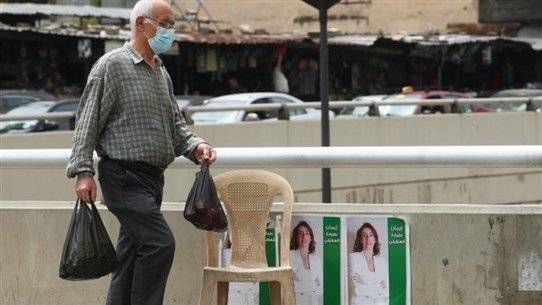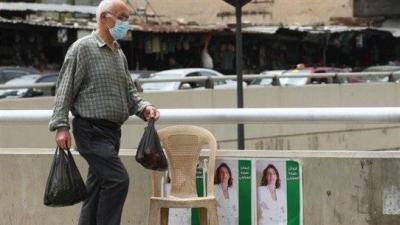Elections come to an end, but their impacts, particularly through election advertisements, do not. This is especially true for illegal advertisements, such as pictures plastered on walls, which their owners are supposed to remove according to the law. This situation recurs every election season; however, this time it may last longer than ever due to the rising costs associated with removing advertisements, despite municipalities warning that they will remove these ads and charge the costs to the candidates.
#### A Jungle of Advertisements
With the announcement of the election date, election campaign materials inundated public and private spaces. As usual, international and local roads, as well as rooftops, bridges, and buildings, were not spared, with billboards and party flags hanging from and on them. Promotional posters have invaded the walls of buildings, institutions, and streetlights. Even though advertising spending for this election is relatively low compared to previous elections, this has not stopped the proliferation of billboards. The question usually posed at the end of each election season remains: Who will remove these advertisements and when?
#### Responsibility of Advertising Companies
Initially, the responsibility for removing advertisements falls on the companies once the advertising license ends, according to George Jbour, head of the Advertising Syndicate. However, due to financial constraints, companies now wait to obtain new advertisements before removing the old ones, as the cost of removal has become high (transport costs for workers and materials for paper removal). Consequently, we may be accompanied by election advertisements for a while.
Jbour's statements are corroborated by the Lebanese Forces, which has the largest advertising campaign in this election, as stated by the head of the election machinery, Nadim Yazbek. He asserts, "The process of removing electoral advertisements was part of the agreement with the company that placed them, and the removal should begin in the coming days. However, today's companies do not remove the old advertisements without new ones due to high costs." It is noteworthy that there is no legal deadline for removing election campaign materials after the day following the voting.
#### Illegal Billboards
This pertains to legal billboards, but what about illegal ones? Jbour notes that there are illegal advertisements according to the advertising organization and licensing law, yet some municipalities still authorize their presence. Additionally, there are illegal and unlicensed billboards imposed by de facto authorities, such as flags on electricity poles. According to Decree No. 1302 of the law, "placing advertisements and billboards on light poles, electricity poles, telephone poles, trees, bridges, tunnel entrances and exits, and public garden walls is prohibited."
In this regard, the head of the Ghobeiri municipality, Maen Khalil, announced that the municipality would remove illegal advertisements at the expense and responsibility of the candidates over the next few days, noting that most advertisements are unlicensed. Likewise, the mayor of Beirut, Jamal Itani, sent a letter to the Beirut governor requesting candidates to remove election banners and advertisements. Nevertheless, many advertisements will remain on international roads and in squares and neighborhood entrances for an extended period. Only a strong wind could remove them without raising suspicion.
Rahil Dandash - Al-Akhbar




